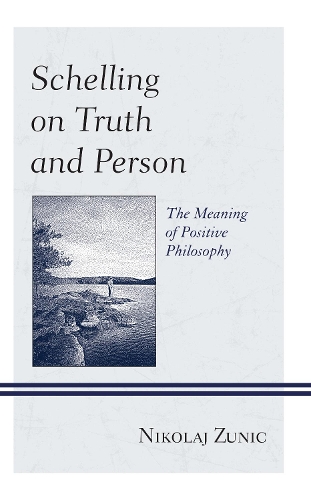
Schelling on Truth and Person: The Meaning of Positive Philosophy
(Hardback)
Publishing Details
Schelling on Truth and Person: The Meaning of Positive Philosophy
By (Author) Nikolaj Zunic
Bloomsbury Publishing PLC
Lexington Books/Fortress Academic
15th August 2022
United States
Classifications
Professional and Scholarly
Non Fiction
Philosophy of religion
Philosophy
193
Physical Properties
Hardback
310
Width 160mm, Height 235mm, Spine 29mm
630g
Description
Positive philosophy is the name that Friedrich Schelling (17751854) gave to a new type of philosophizing that stands in contrast to the so-called negative philosophy that is predominant in modern rationalism. But what exactly is positive philosophy Schelling on Truth and Person: The Meaning of Positive Philosophy argues that its meaning lies in a distinctive view of the human person as a seeker of truth. Truth is presented as historically woven in the movement of life with the phenomena of mythology and religion that reveal the human being's falling away from and return to the truth. Nikolaj Zunic demonstrates that this novel understanding of truth accompanies the development and expression of positive philosophy itself. The anthropological dimension of truth relates to self-knowledge, the soul, spirit, and personality, and Schellings positive philosophy sheds light on the grand themes of the meaning of life, the ontological question (why is there something rather than nothing), the enigma of knowledge and reason, and the affirmation of the existence of God. This book will appeal to students and scholars interested in Schelling's late philosophy as well as broader questions in philosophy concerning meaning, truth, human nature, and rationality.
Reviews
This is a critical contribution to the reception of Schellings late philosophy, especially the positive philosophy, both in itself and as it relates to the negative philosophy. Zunic thoughtfully organizes his analysis around the problem of a philosophical anthropology and includes a refreshingly lucid account of the philosophy of mythology and revelation.
Jason M. Wirth, Seattle University
-- Jason Wirth, Professor of Philosophy, Seattle UniversityAuthor Bio
Nikolaj Zunic is associate professor of philosophy at St. Jerome's University.
